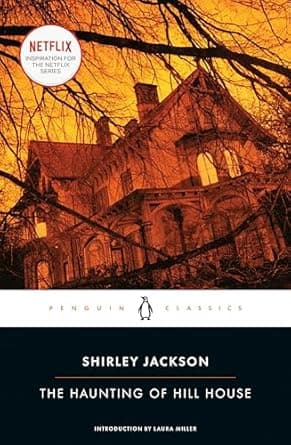
Book Stats
423
Upvotes
45
Downvotes
+378
Net Score
The Haunting of Hill House
by Shirley Jackson
Description
A psychological horror masterpiece that proves the most terrifying monsters are the ones that exist within our own minds.
Dr. John Montague, an investigator of supernatural phenomena, invites three guests to spend the summer at Hill House, a mansion with a reputation for being haunted. Among them is Eleanor Vance, a lonely, repressed woman who has spent her life caring for others and has never had a place to truly call home.
Jackson's genius lies in her ambiguity—we're never certain whether the supernatural events at Hill House are real or manifestations of Eleanor's deteriorating mental state. The house itself becomes a character, with its subtly wrong angles and oppressive atmosphere creating a sense of wrongness that permeates every page.
Eleanor's psychology is the true focus of the novel. She's desperate for belonging, for a place where she can finally be herself, and Hill House seems to offer her that acceptance—even if that acceptance comes with a terrible price. Jackson shows how isolation and repression can make even the most dangerous situations seem preferable to a life of emotional emptiness.
The other guests—Theodora, a psychic with her own emotional walls, and Luke, the house's charming but irresponsible heir—serve as foils to Eleanor's increasing obsession with the house. Their interactions reveal Eleanor's desperate hunger for connection and her inability to form healthy relationships.
Jackson's prose is deceptively simple, but every sentence contributes to the novel's atmosphere of psychological unease. She understood that true horror comes not from external threats but from internal fears—the fear of isolation, of madness, of being fundamentally unlovable. The Haunting of Hill House has influenced countless horror writers and remains the gold standard for psychological horror fiction.